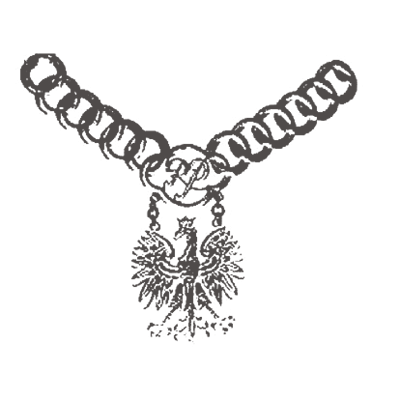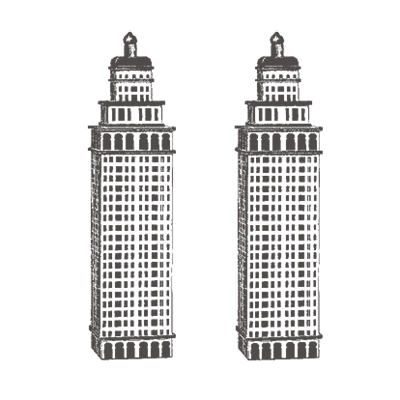Who has standing to sue in the case of a consortium, and does completion of contract performance preclude a claim for modification under Art. 357(1) of the Civil Code?
In the judgment of 24 July 2024 (case no. II CSKP 968/22), the Supreme Court of Poland ruled on doubts regarding legal standing to assert a demand for either contract modification or payment under Art. 3571 of the Civil Code in the event of an extraordinary change of circumstances (the rebus sic stantibus clause), on the part of a consortium of entities executing a public contract for a contracting authority. The court also commented on whether a claim under Art. 3571 can be made after the contract has been fully performed. This ruling is very important for contractual practice in Poland.

Disqualification of a judge in a case over a mortgage denominated in Swiss francs is not as obvious as it seems
Can a judge impartially rule in the case of a bank from which the judge has taken out a mortgage loan? Is the mere fact of holding a mortgage in Swiss francs a basis for disqualifying a judge from hearing cases seeking invalidation of mortgage loans indexed or denominated in that currency? And why is it easier to disqualify a Supreme Court judge than a lower-court judge?

What conditions can be imposed on the obligation to pay a fee to a construction contractor?
In its judgment of 2 June 2021 (case no. II CSKP 7/21), the Supreme Court of Poland ruled on whether payment of the fee to a contractor for construction works can be conditional. This ruling is of great practical importance, as it comments on which contractual provisions regarding the fee are permissible and which are prohibited and thus invalid. This is essential reading for contractors and investors alike, providing valuable tips on how to frame construction contracts to ensure compliance with the regulations while affording proper legal protection.

Acknowledgement of debt: What does the debtor’s behaviour mean?
Recently, the Supreme Court of Poland commented on the subject of acknowledgement of debt, and at the same time gave some general guidance on how to interpret a debtor’s statements and behaviour. This is a key practical issue, as action by the debtor can cause interruption of running of the statute of limitations on the claim. Therefore, debtors should be cautious about what they state to creditors. Conversely, in many cases, creditors can take advantage of the debtor’s behaviour to improve their legal position.

When (part of) a consortium wants to go to court
For many years, the consortium has been a familiar form of cooperation between businesses pursuing public contracts. But this construction still raises legal questions, especially when a dispute arises and goes to court. Because this structure is deceptively similar to an ordinary partnership, sometimes it is unclear which members of a consortium may participate in court proceedings. The Supreme Court of Poland examined this issue in its judgment of 30 June 2021 (case no. III CSKP 75/21).

Pursuing claims for the tort of selective payment of creditors as an alternative method of securing the interests of creditors overlooked by the debtor
In its judgment of 10 February 2021 (case no. I CSKP 33/21), the Supreme Court of Poland considered a cassation appeal by a claimant seeking to prove that it was wronged as a creditor in a fraudulent transfer claim against a third party (governed by Art. 527 and following of the Civil Code). The Supreme Court raised important issues in this debatable decision from the point of view of the safety of participants in commerce, including creditors. Among other things, the court pointed out that the assessment of whether a creditor was harmed within the meaning of Art. 527 §2 is affected by whether the consideration obtained by the debtor was used to satisfy other creditors.

How to properly formulate a fraudulent transfer claim against a third party: Conclusions from Supreme Court of Poland rulings
A claim to set aside fraudulent transfers to a third party (Art. 527 et seq. of the Civil Code) must precisely identify both the parties and the subject matter in the demand for relief set forth in the statement of claim. It is a mistake to assume that the trial court will seek out the missing elements in the justification for the statement of claim.

Defects and payment: Handover dilemmas
When is the investor required to pay for the performance of work? How do identified defects relate to this obligation, and when can handover be refused? These questions cause many difficulties in practice and are the basis for numerous, often very complex and long-running disputes. Recently, this issue was addressed by the Supreme Court of Poland. The interpretive direction it affirmed may help market players, including construction contractors, to whom these findings may apply by analogy.

Liquidated damages in construction contracts not only for works: New resolution of the Supreme Court
On 9 December 2021, the Supreme Court of Poland issued a resolution (case no. III CZP 26/21) examining liquidated damages in construction contracts. In construction, liquidated damages are particularly common, generating serious disputes even threatening the completion of projects. In practice, this instrument is mainly used by investors, and the problem usually affects general contractors and subcontractors.

Do I really own my parking spot? On the use of common property in housing communities
In housing communities, the individual parts of common areas (e.g. parking spots, terraces or gardens) are intended for common use by all owners of premises. Often, to avoid problems with use of such areas, division and use of common areas is established at the stage of acquisition of housing units from the developer. This is known as quoad usum division. Can it be changed if circumstances change?

Claims for procurement damages following Supreme Court resolution III CZP 16/20
In the past, Polish courts took the position that a contractor whose bid was not selected due to a violation of the Public Procurement Law must first file an appeal with the National Appeal Chamber (and possibly a complaint with the state court against the chamber’s ruling), and only then could seek redress from the contracting authority. This discouraged contractors from pursuing claims. A recent resolution by the Supreme Court has changed this situation.

Statute of limitations runs anew after postponement of payment: A new resolution of the Supreme Court
Recently, the Supreme Court of Poland adopted an important resolution specifying the rules for running of the statute of limitations after a postponement of payment (creditor’s extension of the payment deadline). Under the resolution, if payment is postponed, the statute of limitations begins to run again from the new payment deadline. Thus, the view expressed by the Supreme Court allows the repayment of the debt to be divided into instalments along with postponement of the due date, and thus postponement of the beginning of the limitation period.
